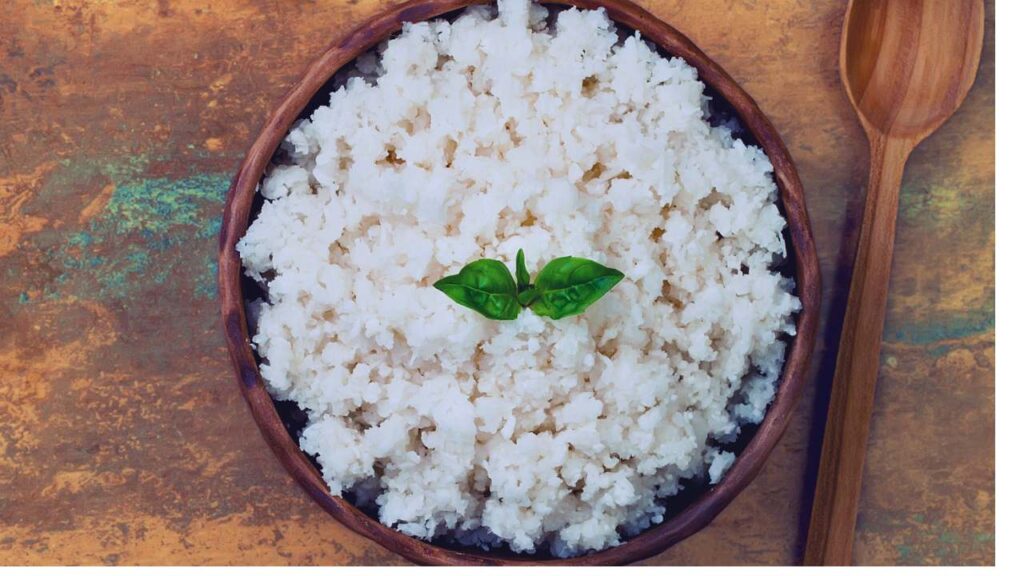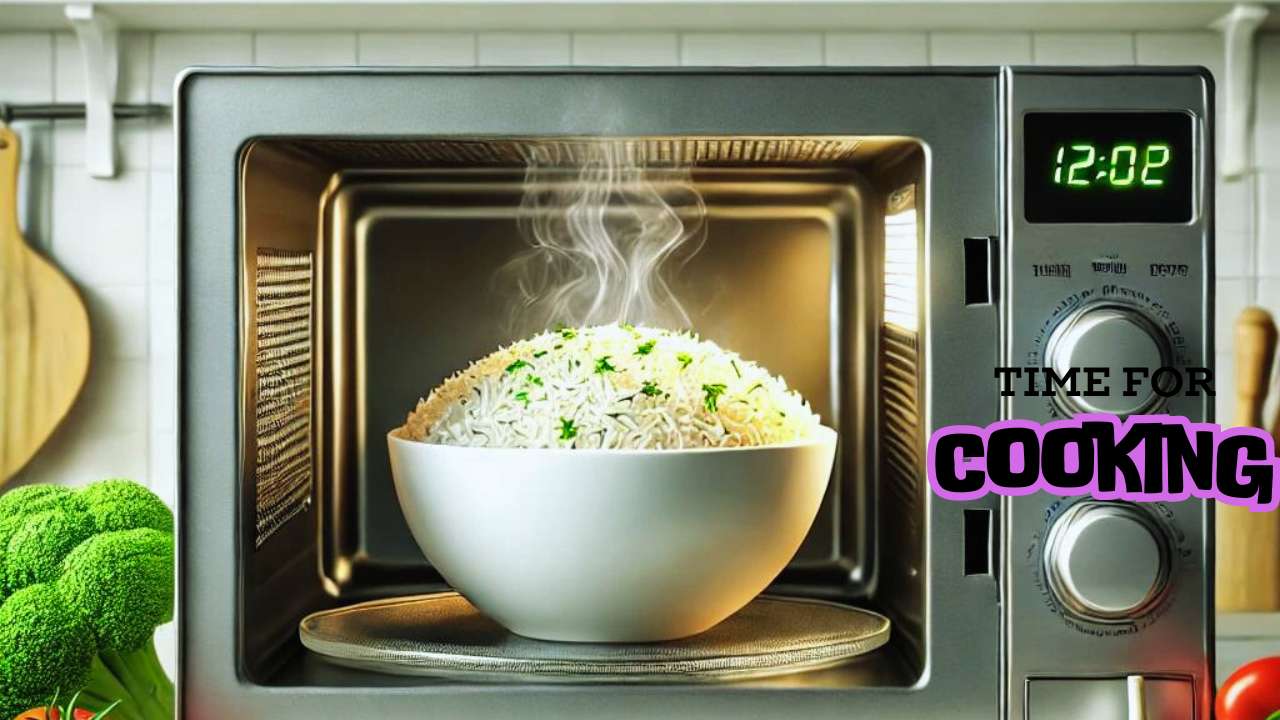Microwave rice is not inherently bad for you. When made carefully, it can be a convenient and wholesome choice.
In the microwave, rice can be cooked quickly. It’s very convenient for busy people. It retains most of its nutrients, making it a healthy choice when compared to other fast food alternatives. Always read the ingredient list to avoid added preservatives and excessive sodium.
Choosing whole grain or brown microwave rice can enhance its health benefits. This convenient option fits well into balanced diets, providing essential carbohydrates and fiber. Ensure proper storage and heating to maintain its quality and safety. Ultimately, microwave rice can be a healthy part of your diet when consumed in moderation
Introduction To Microwave Rice
Microwave rice has become a popular choice for quick meals. It offers convenience and speed for busy lifestyles. But is microwave rice bad for you? Let’s explore this topic.
What Is Microwave Rice?
Microwave rice is pre-cooked rice that you heat in a microwave. It’s packaged in a microwave-safe pouch or container. This rice is ready in just a few minutes. You can find various types of rice, like white, brown, and flavored rice.

How Is It Prepared?
Preparing microwave rice is simple and easy. Here are the steps:
- Open the packaging slightly to vent.
- Place the pouch or container in the microwave.
- Heat it according to the package instructions, usually 90 seconds.
- Carefully remove it from the microwave.
- Use a fork to fluff the rice before serving.
Microwave rice is pre-cooked and just needs reheating. This makes it a quick option for meals. The preparation process is designed to be hassle-free and fast.
| Types of Rice | Cooking Time | Serving Size |
| White Rice | 90 seconds | 1 cup |
| Brown Rice | 90 seconds | 1 cup |
| Flavored Rice | 90 seconds | 1 cup |
Enjoy a quick and easy meal with microwave rice. It’s perfect for busy days.
Nutritional Value
Microwave rice has become a convenient option for many. But what about its nutritional value? Understanding the nutrient content and how it compares to traditionally cooked rice is essential for making informed dietary choices.
Nutrient Content
Microwave rice offers a quick solution for a meal. But does it keep the nutrients intact? Here is a breakdown of the nutrient content found in microwave rice:
- Carbohydrates: Provides energy for daily activities.
- Proteins: Essential for muscle repair and growth.
- Fiber: Keeps the gut healthy and facilitates digestion.
- Vitamins: Contains B vitamins which support metabolism.
- Minerals: Includes iron and magnesium for overall health.
These elements are necessary for a diet that is balanced. But how does microwave rice stack up against traditionally cooked rice?
Comparison With Traditionally Cooked Rice
To understand the differences, let’s compare the nutritional values of microwave rice and traditionally cooked rice:
| Nutrient | Microwave Rice (Per 100g) | Traditionally Cooked Rice (Per 100g) |
| Calories | 130 kcal | 130 kcal |
| Carbohydrates | 28g | 28g |
| Proteins | 2.5g | 2.7g |
| Fiber | 0.5g | 0.4g |
| Vitamins | Varies | Varies |
| Minerals | Varies | Varies |
Both types of rice provide similar calories and carbohydrates. Protein content is slightly higher in traditionally cooked rice. Fiber content remains almost the same. Depending on the rice variety and preparation technique, vitamins and minerals can change.
Microwave rice is a convenient option without compromising much on nutritional value. It offers a quick meal solution while keeping essential nutrients intact.
Health Concerns
Microwave rice offers convenience but may pose health risks. It’s crucial to understand these risks.
Potential Risks
Microwave rice often comes in plastic packaging. Plastic packaging may leach chemicals into the rice. This can affect your health.
High sodium content is another concern. Excessive sodium can raise blood pressure. It may also lead to heart issues.
Sometimes, microwave rice may not be cooked evenly. Uneven cooking can result in harmful bacteria. This can cause food poisoning.
Chemical Additives
Microwave rice often contains chemical additives. These chemicals enhance flavor and extend shelf life. But some of these additives can be harmful.
Preservatives like sodium benzoate are common. Sensitive people may experience allergic reactions from them.
Additionally, flavor enhancers like monosodium glutamate (MSG) are utilized. MSG may lead to headaches and other symptoms in some people.
| Potential Risk | Impact on Health |
| Plastic Packaging | Chemical leaching |
| High Sodium | Increased blood pressure |
| Uneven Cooking | Food poisoning |
| Chemical Additives | Allergic reactions |
Convenience Factor
The convenience factor of microwave rice cannot be overstated. It fits perfectly into busy lifestyles. But what makes it so appealing? Let’s dive into its time-saving benefits and ease of use.
Time-saving Benefits
Microwave rice is ready in just a few minutes. Traditional rice cooking takes much longer. This makes microwave rice ideal for quick meals.
Busy parents and professionals can save a lot of time. You can also avoid the hassle of washing and soaking rice. This quick cooking method makes meal prep a breeze.
Ease Of Use
Microwave rice is incredibly easy to use. Most packets come with simple instructions. You only need to tear a small corner of the packet and pop it in the microwave.
No special skills or equipment are required. Even kids can prepare microwave rice with ease. This ease of use makes it accessible for everyone.
Here’s a quick look at the benefits:
| Traditional Rice | Microwave Rice |
| 30-45 minutes | 2-5 minutes |
| Requires soaking | No soaking needed |
| Multiple steps | One step |
Environmental Impact
Microwave rice has grown in popularity for its convenience. But is it harming our planet? Let’s explore its environmental impact.
Packaging Waste
Microwave rice often comes in single-use plastic pouches. These pouches contribute to packaging waste. They are not easily recyclable. This adds to the growing problem of plastic pollution.
Wildlife may be harmed by plastic garbage. Additionally, it takes hundreds of years to break down. This means each pouch used today will remain on Earth for centuries.
Energy Consumption
Cooking rice in a microwave uses energy. But how much energy does it really use?
- Microwaves are energy-efficient compared to ovens.
- Cooking rice on the stove can take 20-30 minutes.
- Microwave rice takes about 90 seconds to cook.
While microwaves use less energy per minute, the packaging waste is a bigger concern. Balancing convenience and environmental impact is key.
Making An Informed Choice
Microwave rice is a modern kitchen staple. It provides quick and easy meal solutions. But is microwave rice bad for you? To answer this, you need to balance convenience and health. Here’s how to make an informed choice.
Balancing Convenience And Health
Microwave rice saves time. It is perfect for busy days. But it has more sodium and preservatives. These can impact your health. It is important to read the labels. Look for products with fewer additives.
Some microwave rice brands offer healthier options. These have less salt and no artificial flavors. Choose whole grain or brown rice. They are more nutritious. They contain more fiber and vitamins.
Tips For Healthier Options
- Check Nutritional Information: Look for low sodium and no added sugars.
- Choose Whole Grains: Brown rice or quinoa are better than white rice.
- Watch Portion Sizes: Stick to recommended serving sizes to avoid overeating.
- Add Fresh Vegetables: Mix in veggies for added nutrients and fiber.
Here is a quick comparison table:
| Type | Calories | Sodium | Fiber |
| White Rice | 200 | 500mg | 1g |
| Brown Rice | 180 | 10mg | 4g |
Making informed choices is key. Look for healthier microwave rice options. Balance convenience with nutrition. Your health is worth the effort.
Frequently Asked Questions
Is Microwave Rice As Healthy?
Microwave rice can be healthy. It retains nutrients well, but check for added sodium and preservatives in pre-packaged options.
Is Microwave Cooked Rice Bad?
Microwave-cooked rice is safe if properly prepared and stored. It retains nutrients and is convenient for quick meals.
Is Microwave Rice Bad For You Plastic?
Microwave rice in plastic can be harmful. Chemicals might leach into the food when heated. Use microwave-safe containers.
Conclusion
Microwave rice can be a convenient option for busy lifestyles. It’s important to choose quality brands with minimal additives. Always check the label for nutritional information. Moderation and variety are the cornerstones of a balanced diet. By making informed choices, you can enjoy microwave rice without compromising your health.

